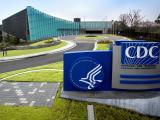Feb 10, 2011 (CIDRAP News) US Food and Drug Administration (FDA) officials announced this week that they are planning to create a new position that will put one person in charge of dealing with foodborne disease outbreaks and leading a permanent team dedicated to that purpose.
The agency yesterday posted an online hiring notice about the new position, called "chief medical officer/national outbreak director." The person will report to Michael Taylor, deputy commissioner for foods.
In an interview today, Taylor said the agency's goal is to improve and broaden the agency's approach to foodborne outbreaks.
"The recruitment of a chief medical officer and director of outbreaks here is part of an effort to really transform the way we think about and manage and learn from outbreaks in our effort to build a prevention-oriented food safety program," Taylor said.
He said the agency is assembling a permanent team to work on foodborne outbreaks, which will number "in the vicinity of 40 people." Until now, he explained, the agency used "kind of an ad hoc approach" when outbreaks occurred, assigning people from various FDA offices to work on them temporarily.
"One of the things we're doing to strengthen the way we respond is really pulling together those people into a multidisciplinary team where people will work full time on outbreaks, not as a side duty but as a full-time responsibility," Taylor said.
One of the outbreak director's primary roles will be to lead the new team, he said, adding, "We think that'll improve our efficiency and effectiveness in responding to outbreaks, internally and in partnership with the CDC [Centers for Disease Control and Prevention], state and local public health agencies, and industry."
Another goal in creating the new position is to broaden the FDA's approach to outbreaks beyond the immediate response, Taylor said. "We need to look at outbreaks in a more holistic and complete way," including working with the CDC and states on surveillance and detection and then reviewing outbreaks in the aftermath to see what can be learned, he explained.
Taylor said the new initiative has been in the works for some time and is not a direct result of the recently passed Food Safety Modernization Act but is in harmony with it. The overarching aim of the law, passed in December, is to strengthen outbreak prevention efforts by both the FDA and the food industry.
"It's connected in the sense that the new law and a lot of things going on at FDA are all about strengthening our ability to do science-based prevention when it comes to foodborne illness," he said.
Among many other provisions, the new law empowers the FDA to order a food recall if a company is reluctant to issue a recall voluntarily. That decision would be up to the FDA director, but the chief medical officer would be the "point person" on the scientific judgments behind such a step, Taylor said.
Jeff Farrar, the FDA's associate commissioner for food protection, said today that having a national outbreak director will be helpful in dealing with outbreaks in which the source of contamination proves elusive.
"In certain outbreaks there's a need to kind of drill down deep," he said. "We go into food processing facilities, do our investigation, turn over everything we can to look for what caused it. Often we don't find the smoking gun. In certain outbreaks there's a real need to assemble the right team, be it water or wildlife experts, and look intensively in the processing facilities and the farm to find where the pathogen came into contact with the food. So the chief medical officer has to identify which outbreaks rise to that level of concern and need."
The FDA's job posting says the national outbreak director will have "overall responsibility for leadership and management, policy development, decision making, strategic planning, and day-to-day operations for food-related outbreaks and food incidents affecting the public health of the nation and within the purview of the FDA."
The position requires a medical degree (doctor of medicine or doctor of osteopathy) and 5 years of residency training or equivalent experience and training. The salary range is about $123,000 to $155,000.
When he was asked why the position isn't open to those trained in other disciplines related to food safety, such as veterinary medicine, Taylor commented, "Managing foodborne illness prevention is a multidisciplinary undertaking for sure and we in the food program are rich in the disciplines. We want to strengthen our medical leadershipit's about preventing human illness."
The FDA plan drew a positive response today from Chris Waldrop, a food policy specialist at the Consumer Federation of America, based in Washington, DC.
"It sounds like FDA is trying to be more strategic and deliberate in its approach to foodborne illness outbreak investigations and surveillance activities," he told CIDRAP News. "In the past, outbreak investigations have sometimes been uncoordinated and there's been a lack of clarity about roles and responsibilities. That may have led to delays in the investigation of and response to foodborne illness outbreaks. A more coordinated approach, in collaboration with CDC and state and local agencies, would be welcome."
See also:
Jan 3 CIDRAP News story "Federal, industry officials praise food safety law"


















